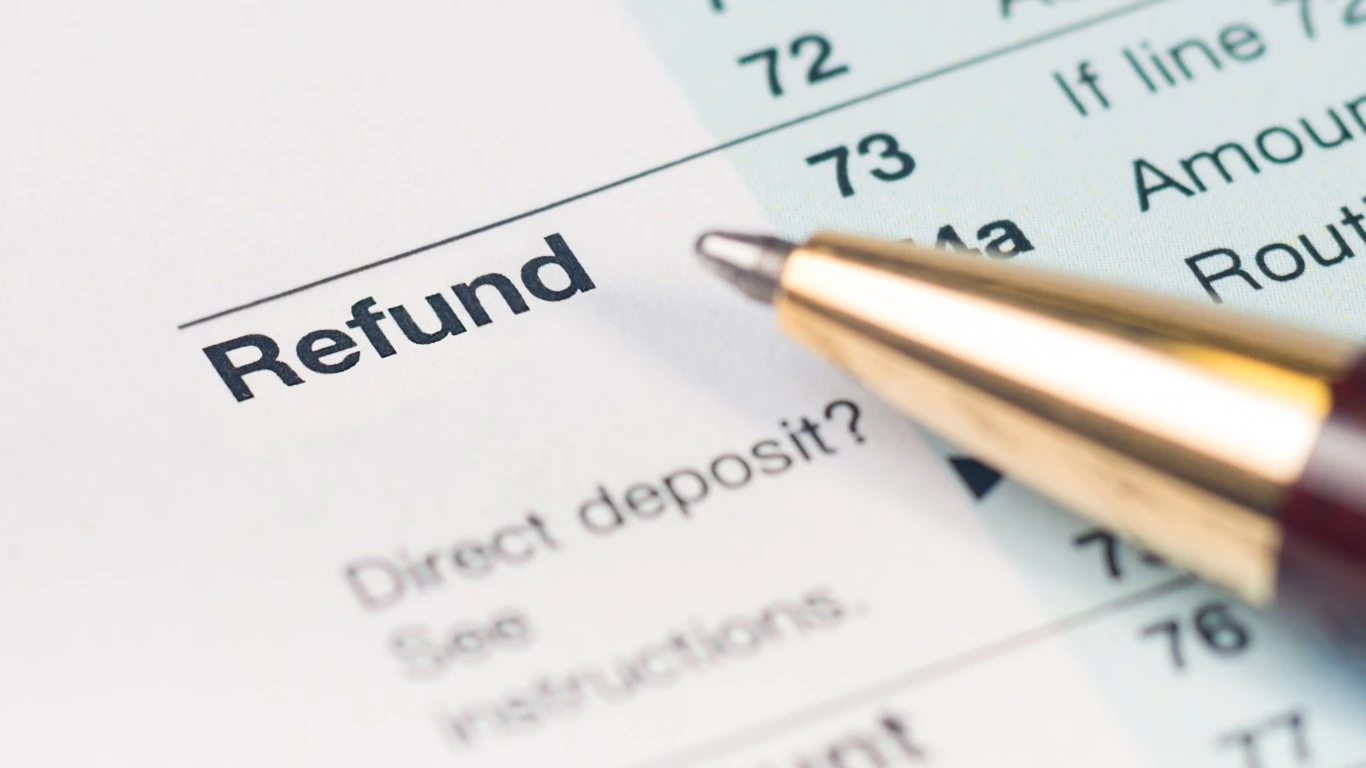
By Danny Newman, Wealth of Geeks
The IRS has processed more than 63-million tax returns since January 24 of this year, returning in excess of $151-Billion dollars to taxpayers who overpaid.
A tax refund isn’t just a cash lump sum you receive at the end of the year. Nor is it found money or simple good fortune. It’s an opportunity. As tempting as it is to spend this financial windfall on new clothes, gizmos, and gadgets, the wiser approach is to make the money work for you.
From saving and investing to paying down debt, when it’s spent sensibly, a tax refund can improve your financial situation and help bridge the gap between you and your long-term monetary goals. But, of course, the tricky part is knowing where to allocate the funds!
If you’re wondering what to do with your tax refund this year in 2022, here are five ideas that make sound financial sense.
Build an Emergency Fund
In 2019, a GoBankingRates survey found that almost 70% of Americans had less than $1,000 in savings. Not only that, but over 50% of women and 38% of men have $0 in savings.
Consider rectifying the situation if you’re in a similar boat. Putting some or all of the money from your tax refund into a high-yield savings account will cover your back in the event of future rainy days and unexpected expenses. You’ll also enjoy newfound peace of mind, knowing you have a financial buffer if something goes wrong.
Reduce Debt
With a sizeable emergency fund already in place, another sage use for a tax refund is to pay off high-interest debt (e.g., credit card debt). After all, financial security can seem like a pipe dream when you’re struggling to cope with spiraling loan repayments, interest costs, and late fees. The longer it takes to pay, the more expensive the debt becomes.
Unfortunately, this predicament’s commonplace in the US today. The average American has almost $90,500 of debt to repay, and total consumer debt in the US currently sits at $15.6 trillion. If you have a slice of that pie, then your tax refund can be a lifeline that saves you vast sums of money in interest payments over time.
In a similar vein, consider making an extra repayment on your mortgage. Reducing the principal by a few thousand dollars each year will help lower the interest expense over the loan’s lifetime. This is especially true early in a mortgage when most payments are going toward interest.
Invest
Moving another rung up the ladder of financial security, why not invest your tax refund instead of spending it? A natural shield against inflation, you’ll harness the power of compounding interest and watch your net worth grow year-over-year. Whether it’s buying stocks or contributing to a retirement account, there’s a wealth of investment opportunities available.
According to the US Census Bureau survey, nearly half of people in the US nearing 67 years old have nothing saved for retirement. In addition, the average person in their 20s has just $10,500 in their retirement plan, while those in their 30s have $38,400.
Young investors can beat the averages by investing some of their tax refunds, and older investors can catch up. The trick is finding investments that suit your personal goals and risk tolerance—one approach to build a diversified portfolio of passive index mutual funds.
Personal Development
It’s often said that the best investment is an investment in yourself. Sometimes referred to as your “human capital,” any skills, knowledge, or experience you gain can pay significant dividends down the line. The best part? You’re in control. Unlike the stock market, this is an investment for which you govern the rate of return.
From mastering a particular discipline to honing your confidence and capabilities at a given task, the door opens to pay rises, job openings, and lucrative new levels of responsibility. We recommend focusing on two specific areas with your tax refund: paying for special training and expanding your education. For example, why not sign up for the MBA you’ve always talked about doing or paying to attend a course on leadership skills?
Property Repairs and Replacements
Over 65% of Americans own their home nowadays, and for most of them, it’s their single most significant asset. If that’s the case for you, then a wise use of your tax refund could be to make essential property repairs, invest in its upkeep, or pay for desirable additions and alterations. These actions serve two primary purposes:
First, keeping your home in good condition should prevent its market value from dropping and reduce the potential for expensive future maintenance problems. Secondly, specific changes such as a bathroom remodel, building a deck, and making the property more energy-efficient can enhance its appeal among aspiring buyers and thus increase your home’s value.
Remember What to Do with Your Tax Refund
A tax refund seems like the perfect excuse to indulge in some long-awaited retail therapy for many people. However, while there’s no explicit harm in this approach, it fails to account for the unique financial opportunity these refunds represent.
With a cash lump sum at your disposal, you have a chance to bolster your savings, alleviate your burden of debt, and, ultimately, take a step toward greater financial freedom. Hopefully these suggestions have provided some valuable food for thought.
Sponsored: Tips for Investing
A financial advisor can help you understand the advantages and disadvantages of investment properties. Finding a qualified financial advisor doesn’t have to be hard. SmartAsset’s free tool matches you with up to three financial advisors who serve your area, and you can interview your advisor matches at no cost to decide which one is right for you. If you’re ready to find an advisor who can help you achieve your financial goals, get started now.
Investing in real estate can diversify your portfolio. But expanding your horizons may add additional costs. If you’re an investor looking to minimize expenses, consider checking out online brokerages. They often offer low investment fees, helping you maximize your profit.






